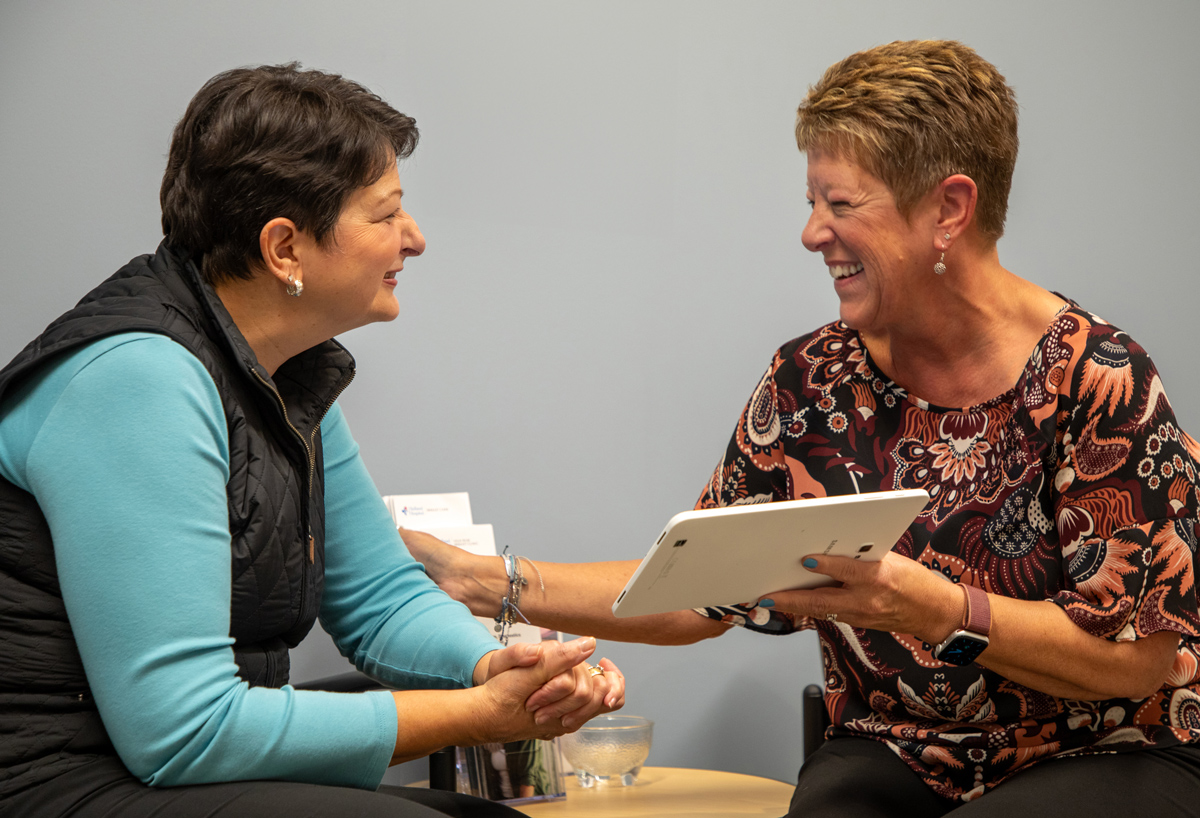
What started out as a routine mammogram for Holland resident Shawn Luepke resulted in a phone call no one ever wants to get.
“I was called back that afternoon for an ultrasound,” says Shawn. Just a few days later, she was diagnosed with Stage 2 triple-negative breast cancer.
After completing months of chemotherapy, Shawn underwent a bilateral mastectomy. Surgeons also removed her axillary lymph nodes – lymph nodes located in the underarm area – to help prevent the cancer from spreading.
Unfortunately, the removal of Shawn’s axillary lymph nodes increased her risk of lymphedema, swelling in the limbs caused by the accumulation of protein-rich fluid typically drained through those lymph nodes. Lymphedema is a painful condition that affects 20% of breast cancer survivors and requires the patient to wear a compression sleeve for the rest of their life.
Holland Hospital’s Edema & Lymphedema Program plays a crucial role in the lives of patients who have undergone axillary lymph node removal as part of breast cancer treatment. The program carefully monitors patients at risk for lymphedema, like Shawn.
To catch lymphedema early, the program uses a painless, noninvasive screening platform to catch lymphedema in its early stages. The digital device tests a person’s L-Dex (lymphedema index) score against a baseline established before surgery. If that score ever increases, the patient is referred to Holland Hospital’s certified lymphedema specialists for treatment. In most cases, when it is caught early—even before visible signs of swelling—lymphedema can be reversed.
While there is no cure for patients living with lymphedema, the therapists at Holland Hospital Lymphedema Program can help them effectively manage their condition through personalized, holistic treatments including therapy, education, exercise and self-care.
“We have a very strong lymphedema program,” says Alecia Jones, BSN, RN, OCN, Breast Nurse Navigator at Holland Hospital Breast Care. “I am incredibly proud of that.”
As of this month, Shawn has reached a significant milestone: she is two years out from her last chemotherapy treatment. She will continue screening her L-Dex score every six months for up to five years.
Shawn describes Holland Hospital’s Breast Care and lymphedema program and her overall quality of care as a blessing.
“The compassion and care I received from my caretakers at Holland Hospital helped me get through some of the most difficult days of my life,” she says. “They are a well-oiled machine, and they treat you like you are the only patient they have.”
Call Holland Hospital Breast Care at (616) 355-3865 to schedule a mammogram or to talk to a breast nurse navigator about lymphedema screening.